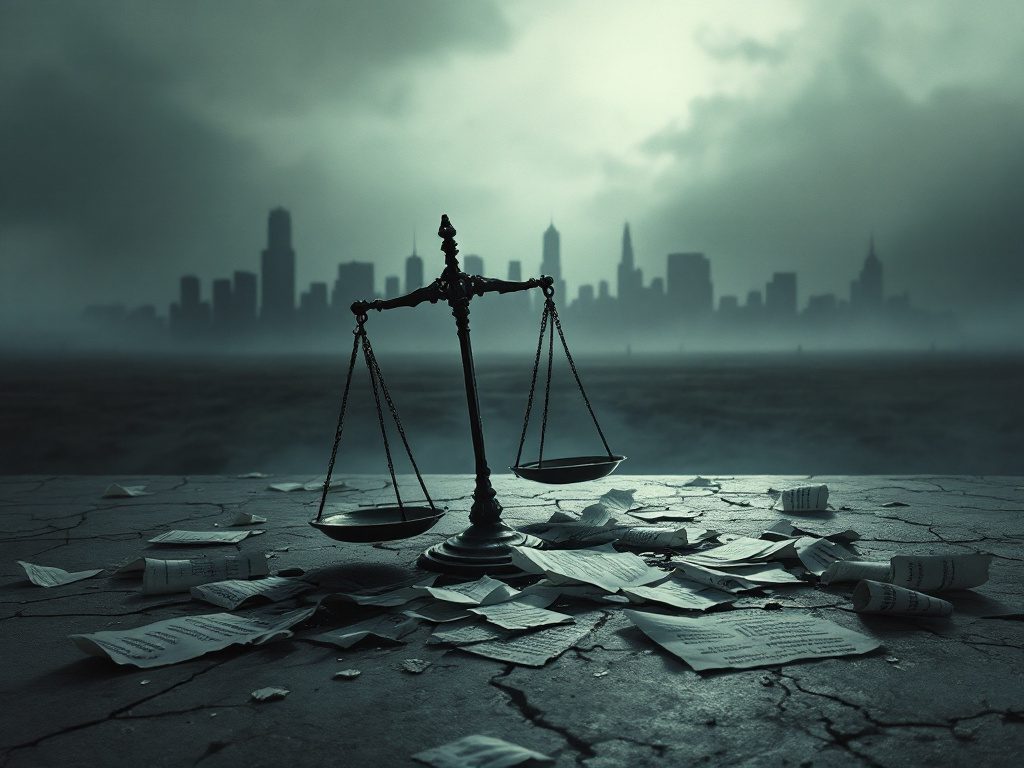The New Face of Sanctions: Human Rights Lawyers in the Crosshairs
Imagine being barred from entering your own home because of your commitment to international justice. This is now a startling reality for Amal Clooney, a celebrated human rights attorney, and others after the Trump administration announced the possibility of sanctions against legal professionals who assist the International Criminal Court (ICC) in cases deemed hostile to American interests and its allies. The move signals a dramatic escalation in the politicization of U.S. foreign policy, targeting not government officials or adversarial states, but lawyers whose “crime” is providing counsel on war crimes and crimes against humanity.
Amal Clooney, global advocate and wife of actor George Clooney, isn’t your average legal professional. She’s a British-Lebanese barrister, admitted to the bar in both England and New York, with a resume that reads like a primer on defending universal human rights. Yet, under Executive Order 14203, signed by then-President Donald Trump, Clooney and several of her British counterparts have been warned by the UK Foreign Office: their travel and financial freedoms in the U.S. are at risk. The U.S. government has already tested this power, freezing assets and prohibiting entry for Karim Khan, the ICC’s chief prosecutor, a stark precedent underscoring these warnings are not hollow threats. (Financial Times)
The underlying catalyst: The ICC’s November 2024 decision to issue arrest warrants for Israeli Prime Minister Benjamin Netanyahu and former Defense Minister Yoav Gallant, alongside Hamas leaders, for alleged war crimes and crimes against humanity in Gaza. Netanyahu and Gallant have dismissed the charges as “absurd and false lies.” Yet, for lawyers like Clooney, the risk goes beyond a professional inconvenience. She and her family have homes in New York and Los Angeles. George Clooney’s Broadway commitments have kept them stateside, making possible sanctions deeply disruptive to their lives and livelihoods (BBC).
Legal Precedents and the Chilling Effect on International Law
Why is this move so consequential? Unlike previous American sanctions, historically deployed against rogue regimes, corrupt officials, or terror financiers, these sanctions strike at the heart of international law’s functioning. Attacking lawyers for doing their jobs threatens not just individuals, but the principle of legal independence at the global level. According to legal scholar Professor Philippe Sands of University College London, “Imposing such travel and asset bans on barristers is attempted intimidation—undercutting the very structure of international law and accountability.”
How did we get here? Trump’s executive order invokes the International Emergency Economic Powers Act of 1977, originally meant to address extraordinary foreign threats. The administration’s justification—protecting U.S. and allied interests against “illegitimate and baseless” ICC actions, and specifically denouncing what it calls “anti-Christian bias”—features overtly politicized language that raises concerns about the independence of U.S. foreign policy from specific ideological and religious narratives. As the Financial Times reported, the British Foreign Office’s warning to Clooney and her colleagues is nearly unprecedented. There is little to no legal recourse, and challenging such orders could tie up attorneys in endless litigation while freezing their assets and restricting their movement.
Professional repercussions ripple far wider than celebrity headlines. The threat of sanctions chills the willingness of talented lawyers to advise international bodies, undermining the enforcement of humanitarian law at the very time it is most needed. Harvard Law professor Alex Whiting notes, “When lawyers can be punished for upholding both sides of justice, everyone’s due process is at stake.” Such threats may coerce silence or compliance, a tactic more often associated with authoritarian regimes than Western democracies.
“When governments punish attorneys for advocating impartial justice under international law, they’re not just silencing lawyers—they’re silencing the very idea of accountability.” — Alex Whiting, Harvard Law Professor
International Consequences and the Battle for Progressive Values
If these sanctions move forward, the ramifications for global justice could be profound and lasting. A closer look reveals that this isn’t just about Amal Clooney or a handful of British lawyers. This is a confrontation over whether powerful states can unilaterally decide who is worthy of defending international law—a question that strikes at the heart of progressive values like equality, accountability, and the rule of law.
UN officials and human rights groups have decried the trend of governments undermining international accountability for war crimes, whether in Ukraine, Gaza, or beyond. “Targeting those who pursue legal redress for atrocities is a perversion of justice itself,” Human Rights Watch warned earlier this year. History offers a sobering lesson: When legal advocates are silenced or intimidated, impunity for the powerful grows, and victims of atrocity go unheard. From the Nuremberg Trials to the Truth and Reconciliation Commissions of post-apartheid South Africa, the integrity of international law has depended on fearless legal advocacy—even against entrenched interests.
Is this really the America we want? Decades of bipartisan support for international rule of law are being called into question by a single executive order, issued not through broad consensus but unilateral fiat. Diversity, fairness, and collective well-being require courageous defense—especially when it’s inconvenient for the powerful. Professor Sands reminds us, “The price of true justice is borne most heavily by those who champion it when it’s unpopular.”
You may not be a barrister facing travel bans, but the stakes couldn’t be clearer. When governments attempt to silence the advocates of justice, the recoil inevitably finds its way back to all of us. Our values—equality before the law, defense of human rights, respect for legal independence—are on the line.

